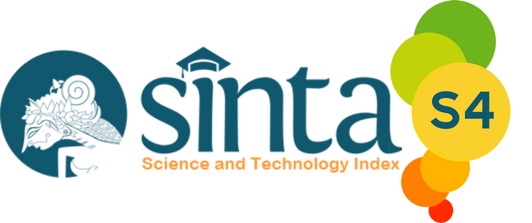PELATIHAN PENGGUNAAN TEKNOLOGI DIGITAL GUNA MENINGKATKAN PENGUASAAN MATERI DAN LITERASI DIGITAL PADA GURU FISIKA
DOI:
https://doi.org/10.25273/jta.v9i2.14057Keywords:
Digital Technology, Material Mastery, Digital Literacy, Teknologi Digital, Penguasaan Materi, Literasi DigitalAbstract
Abstract. The factors that must play a role in the success of learning today are mastery of the material, pedagogic skills, and digital literacy skills for teachers. In practice, more dominant pedagogic skills are mastered by the teacher. The solution that universities can do is to provide training that aims to improve material mastery and digital literacy. The method of implementing the training through 8 stages, namely: (1) Pretest, (2) Pretest Analysis, (3) FGD and Solutions, (4) Designing Training Materials, (5) Material Deepening Training, (6) Digital Technology Training, (7) Posttest, and (8) Reflection and Evaluation. The results for physics teachers from several MAN and Vocational Schools in Madiun City have an impact on (1) increasing mastery of physics concepts/content knowledge (kinematics, dynamics, and electrical circuits) materials and (2) increasing teacher skills in digital literacy.
ÂAbstrak. Faktor yang sangat berperan dalam keberhasilan pembelajaran saat ini adalah penguasaan materi, kemampuan pedagogik, dan kemampuan literasi digital bagi guru. Dalam praktiknya, keterampilan pedagogik lebih dominan dikuasai oleh guru. Solusi yang dapat dilakukan perguruan tinggi adalah memberikan pelatihan yang bertujuan untuk meningkatkan penguasaan materi dan literasi digital. Metode pelaksanaan pelatihan melalui 8 tahapan, yaitu: (1) Pretest, (2) Pretest Analysis, (3) FGD dan Solusi, (4) Merancang Materi Pelatihan, (5) Pelatihan Pendalaman Materi, (6) Pelatihan Teknologi Digital, (7) Posttest, dan (8) Refleksi dan Evaluasi. Hasil pelatihan pada guru fisika dari beberapa MAN dan SMK di Kota Madiun telah berdampak pada (1) peningkatan penguasaan materi konsep/isi pengetahuan fisika (kinematika, dinamika, dan rangkaian listrik) dan (2) peningkatan keterampilan guru dalam literasi digital.
Â
Â
Â
Â
Downloads
References
Abdurrahman, A., Nurulsari, N., Maulina, H., Rahman, B., Umam, R., & Jermsittiparsert, K. (2019). Multi-level scaffolding: A novel approach of physics teacher development program for promoting content knowledge mastery. International Journal of Innovation, Creativity and Change, 7(8).
Alneyadi, S. S. (2019). Virtual lab implementation in science literacy: Emirati science teachers’ perspectives. Eurasia Journal of Mathematics, Science and Technology Education, 15(12), em1786.
Aripin, I., & Suryaningsih, Y. (2021). The development of prototype virtual laboratory through biology, technology, engineering, and mathematics (BTEM). Journal of Physics: Conference Series, 1806(1), 012171.
Arista, F. S., & Kuswanto, H. (2018). Virtual Physics Laboratory Application Based on the Android Smartphone to Improve Learning Independence and Conceptual Understanding. International Journal of Instruction, 11(1), 1–16.
Baser, M. (2006). Effects of conceptual change and traditional confirmatory simulations on pre-service teachers’ understanding of direct current circuits. Journal of Science Education and Technology, 15, 367–381.
Licorish, S. A., Owen, H. E., Daniel, B., & George, J. L. (2018). Students’ perception of Kahoot!’s influence on teaching and learning. Research and Practice in Technology Enhanced Learning, 13(1), 1–23.
Purwandari, R. D. (2015). Physics Laboratory Investigation of Vocational High School Field Stone and Concrete Construction Techniques in the Central Java Province (Indonesia). Journal of Education and Practice, 6(11), 85–92.
Saikkonen, L., & Kaarakainen, M.-T. (2021). Multivariate analysis of teachers’ digital information skills-The importance of available resources. Computers & Education, 168, 104206.
Tuminaro, J., & Redish, E. F. (2007). Elements of a cognitive model of physics problem solving: Epistemic games. Physical Review Special Topics-Physics Education Research, 3(2), 020101.
Warno, K. (2020). The factors influencing digital literacy of vocational high school teachers in Yogyakarta. Journal of Physics: Conference Series, 1446(1), 012068.
Widana, I. W. (2020). The effect of digital literacy on the ability of teachers to develop HOTS-based assessment. Journal of Physics: Conference Series, 1503(1), 012045.
Widana, I. W., Sumandya, I. W., Sukendra, I. K., & Sudiarsa, I. W. (2020). Analysis of conceptual understanding, digital literacy, motivation, divergent of thinking, and creativity on the teachers skills in preparing hots-based assessments. Journal of Advanced Research in Dynamical and Control Systems-JARDCS, 12(8), 459–466.
Zuhdi, M., & Busyairi, A. (2021). Misconception Profile of Prospective Physics Teachers Assessed from Various Representations of Electricity Subjects. Journal of Science and Science Education, 2(1), 33–37.
Downloads
Published
Issue
Section
License
With the receipt of the article by Jurnal Terapan Abdimas Editorial Board and the decision to be published, the copyright regarding the article will be transferred to Jurnal Terapan Abdimas.
Jurnal Terapan Abdimas has the right to multiply and distribute the article and every author is not allowed to publish the same article that was published in this journal.
Every accepted manuscript should be accompanied by "Copyright Transfer Agreement" prior to the article publication.
Jurnal Terapan Abdimas by http://e-journal.unipma.ac.id/index.php/jta is licensed under a Creative Commons Attribution-ShareAlike 4.0 International License.
Â
Â





